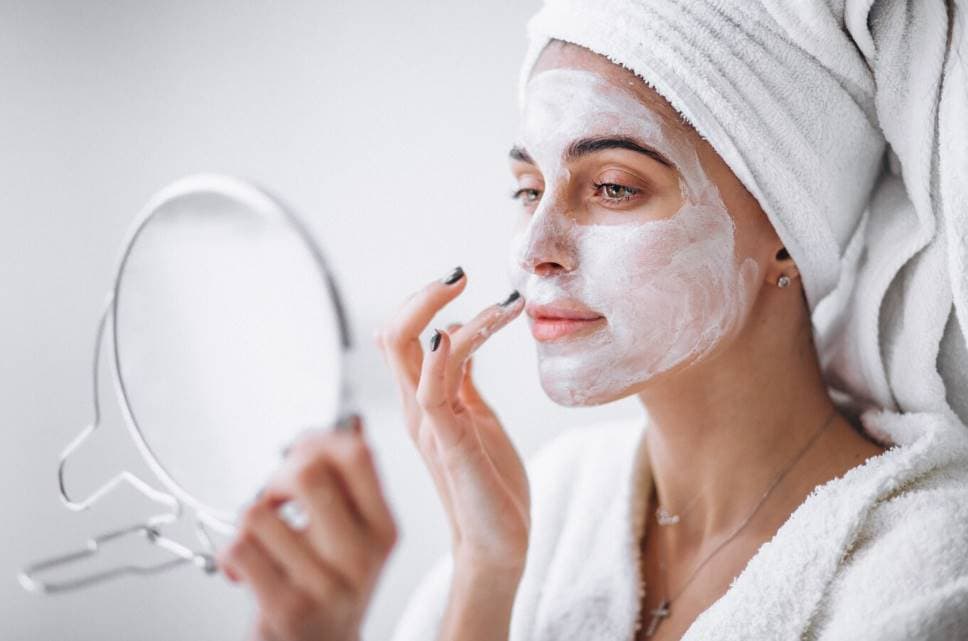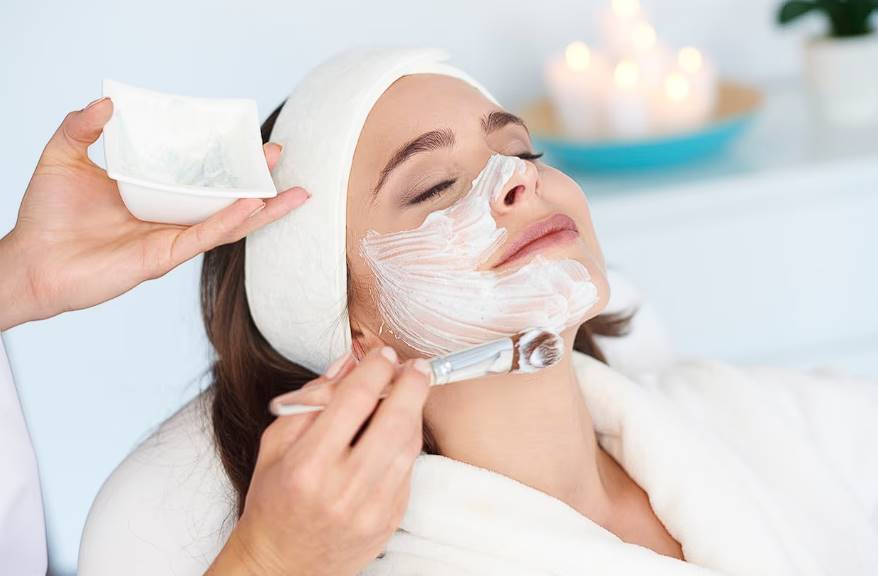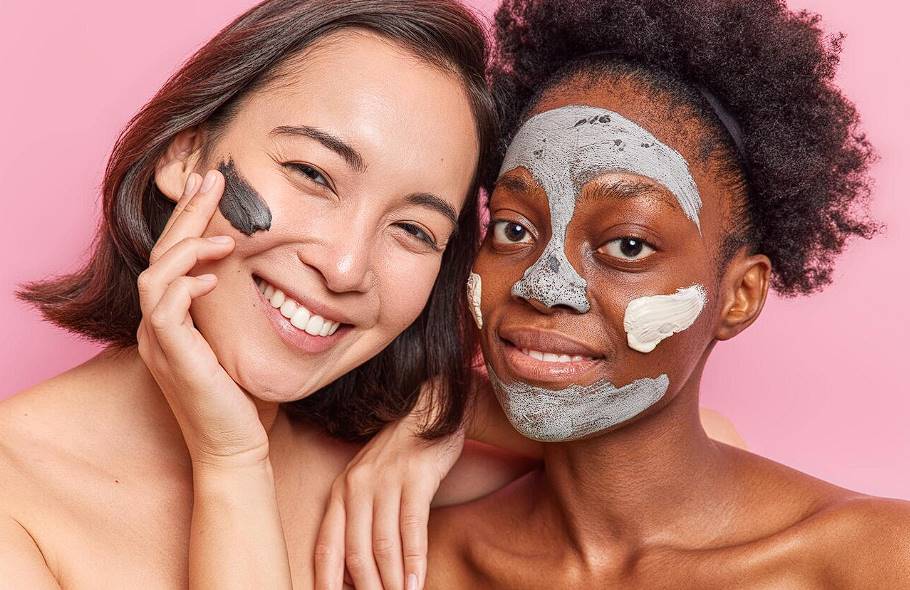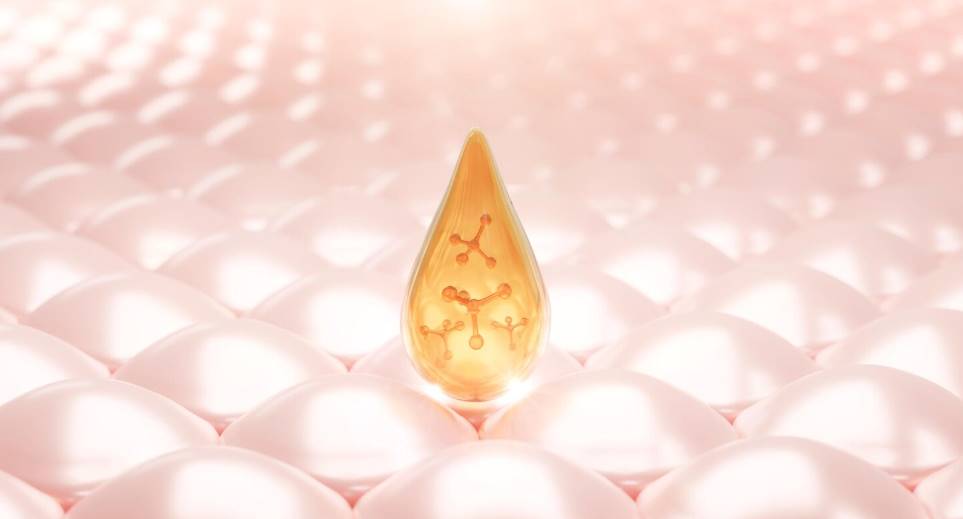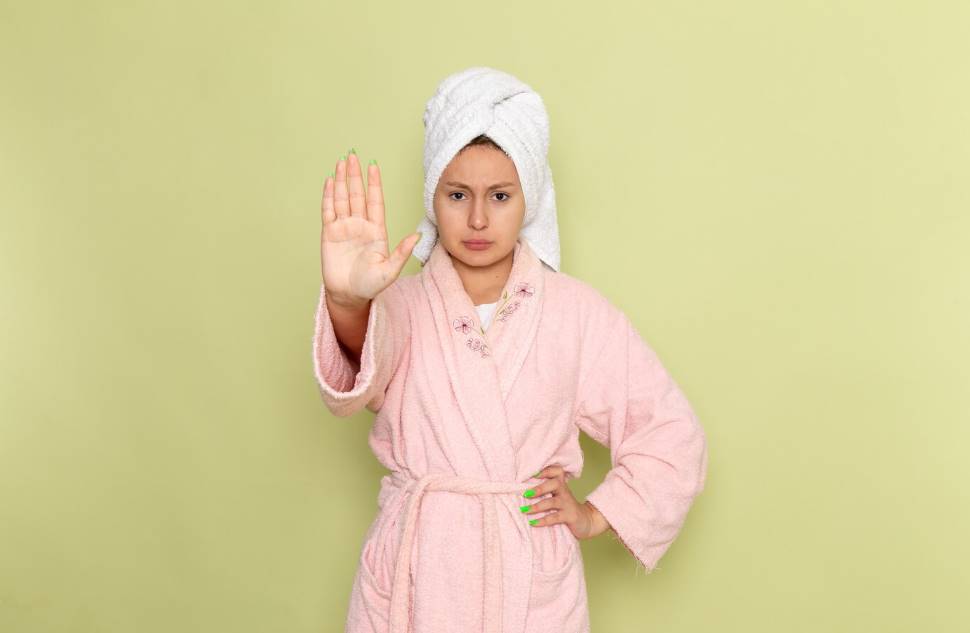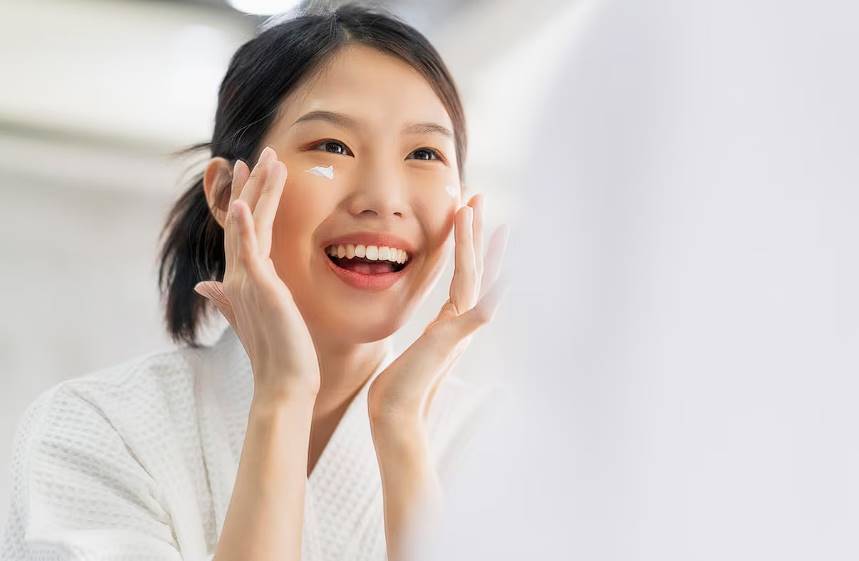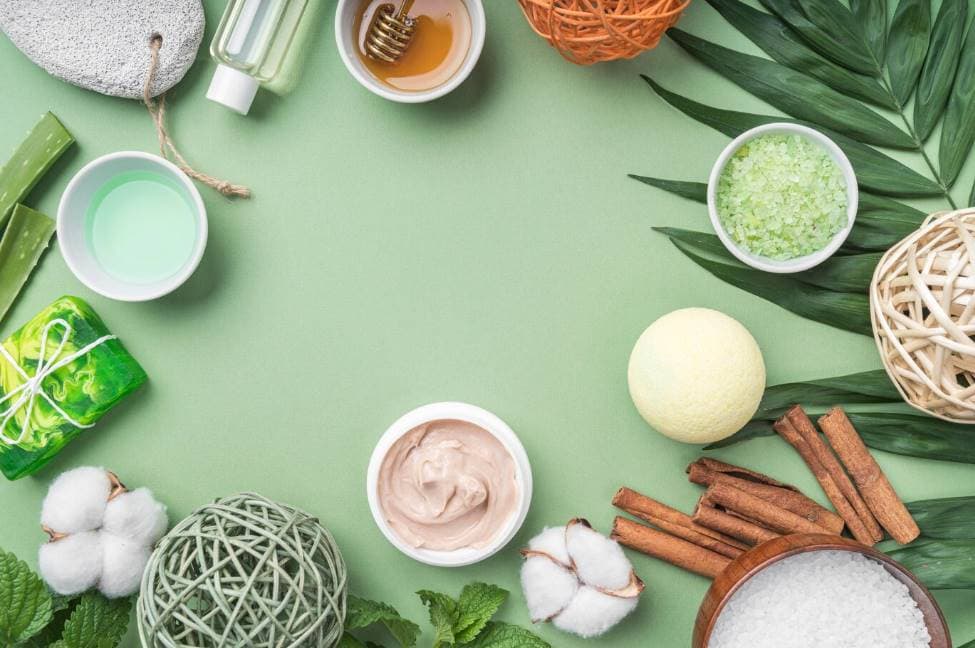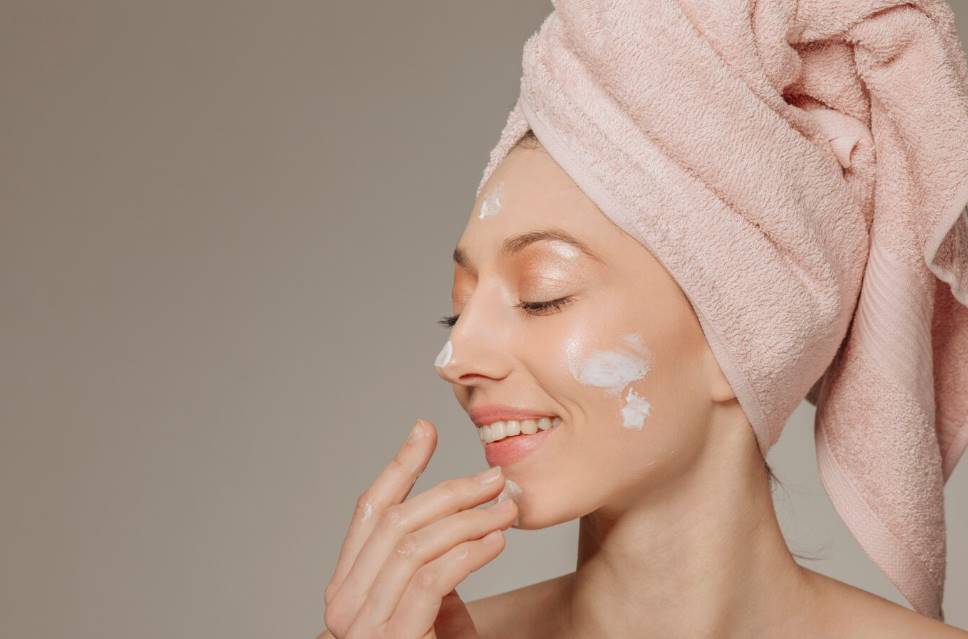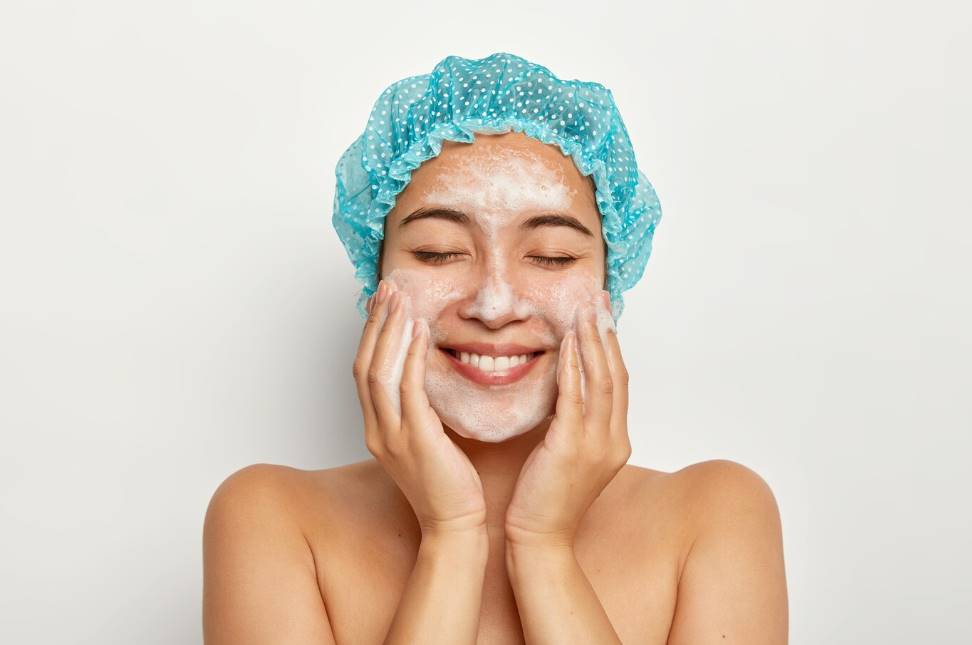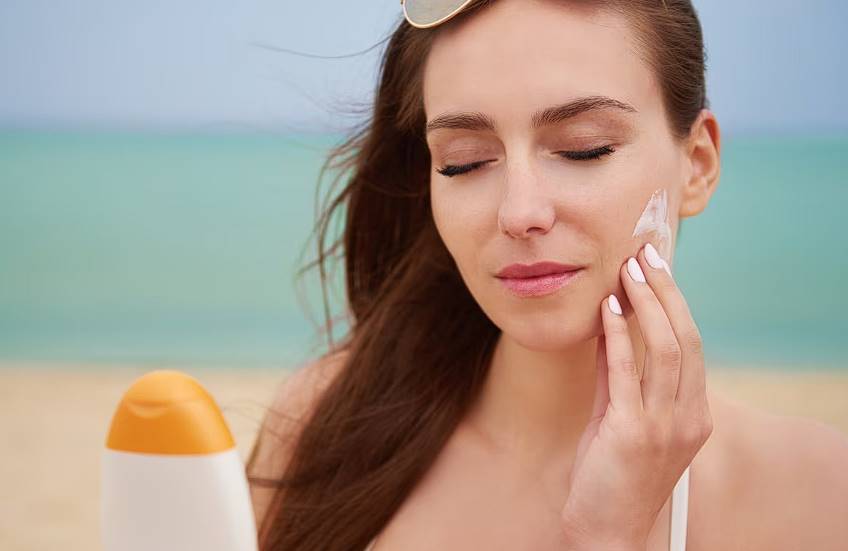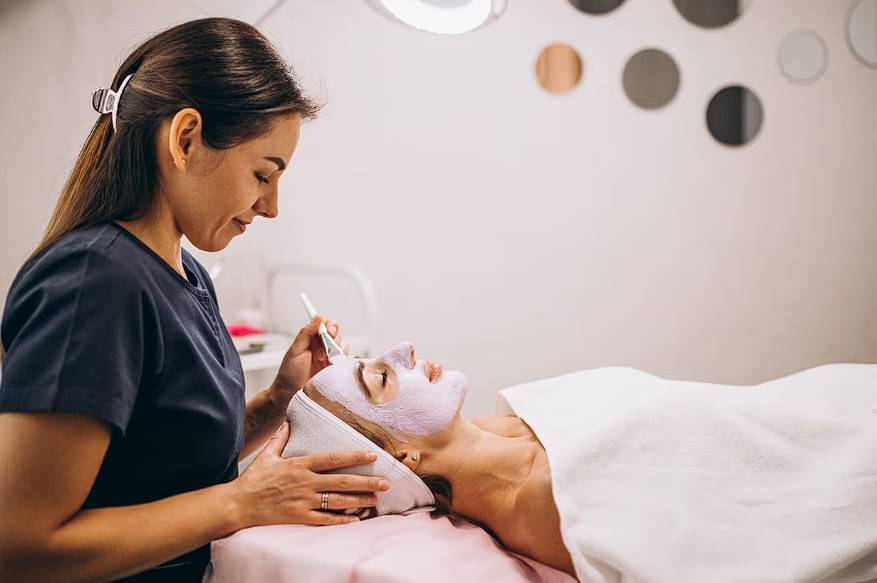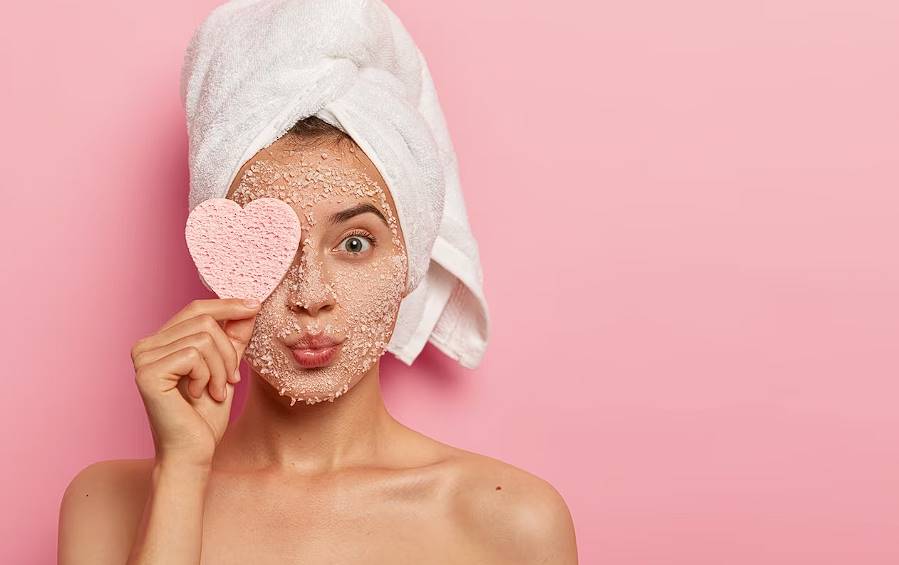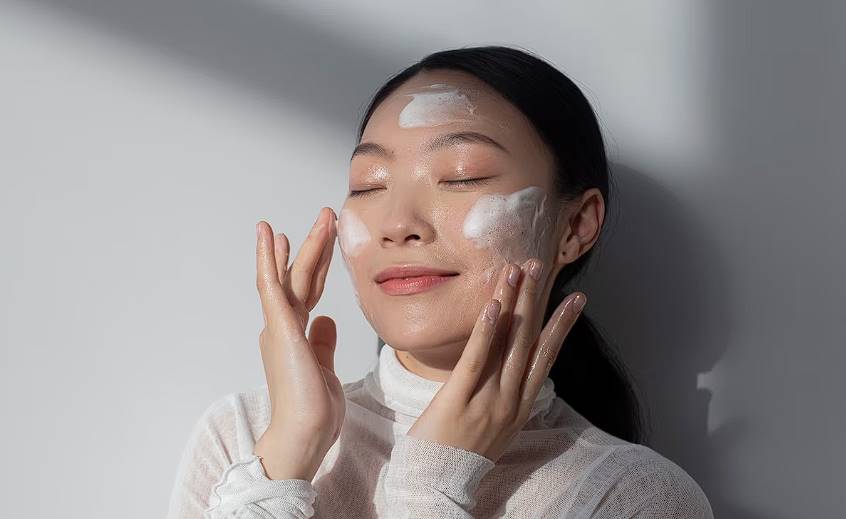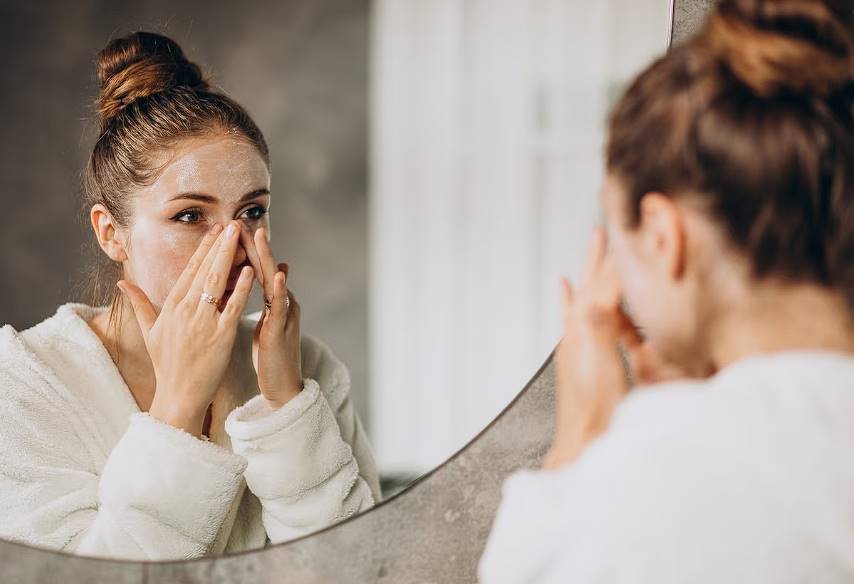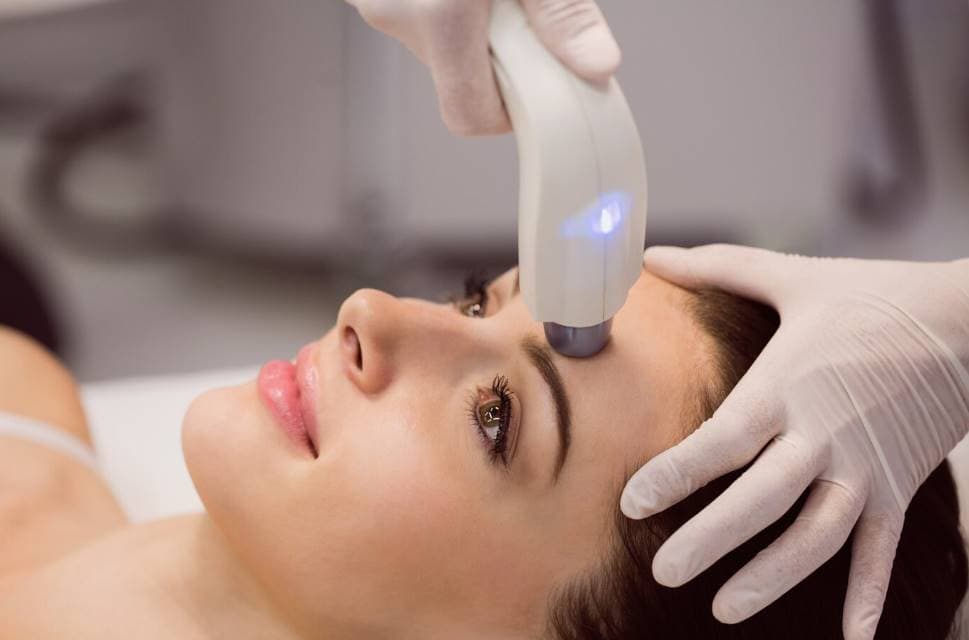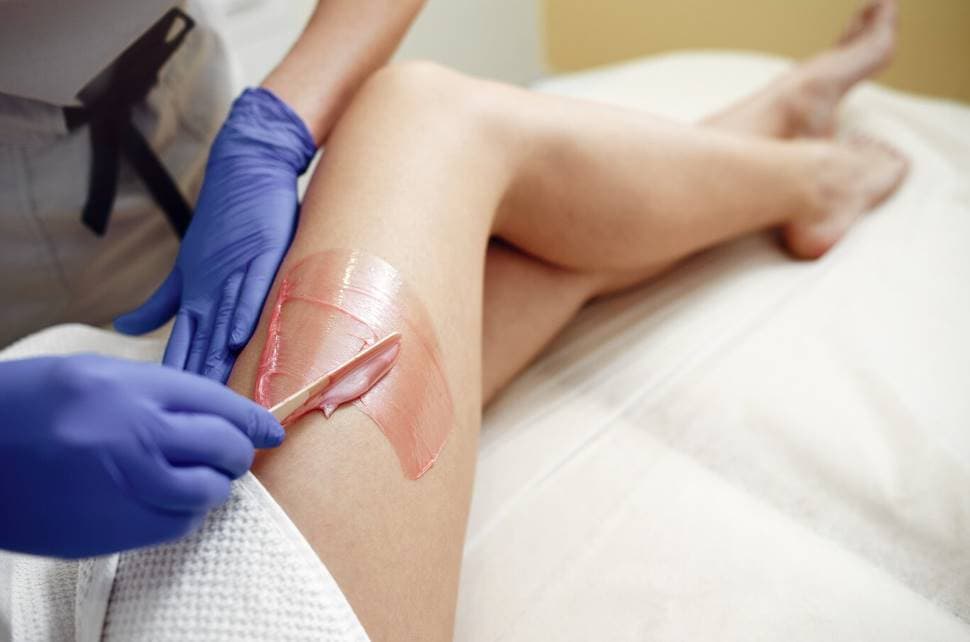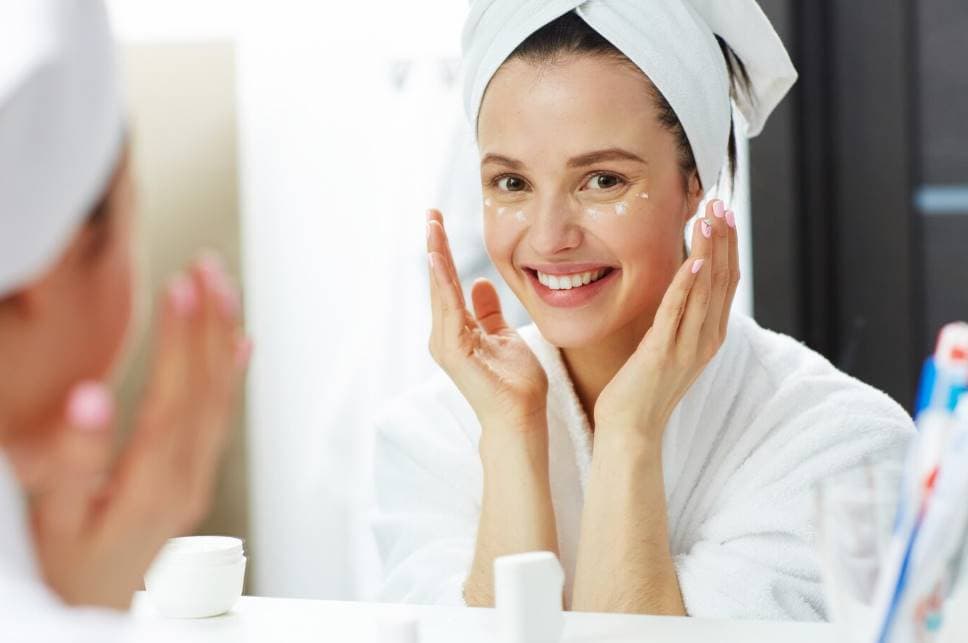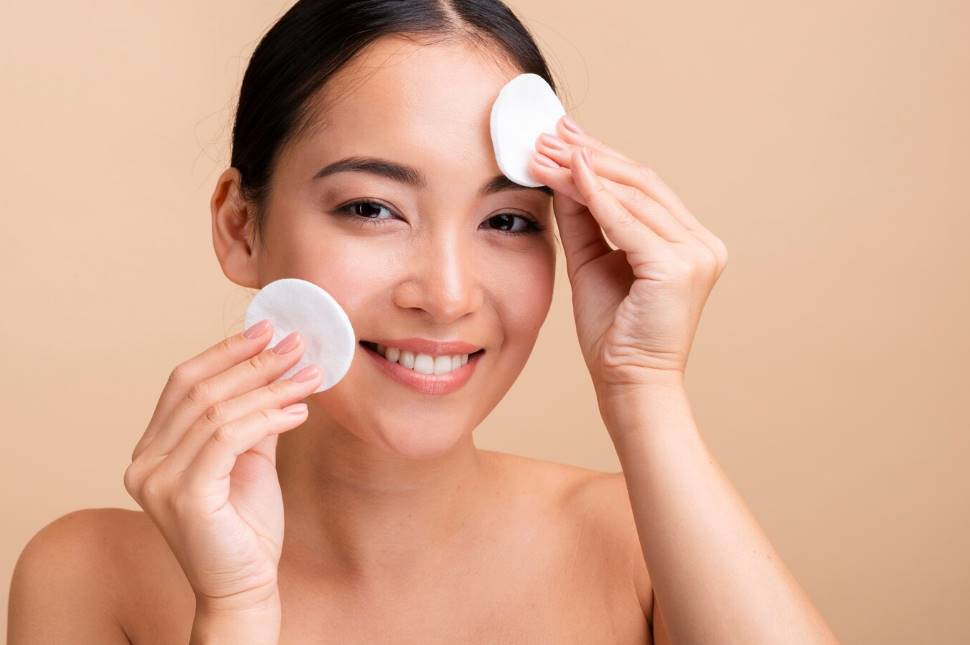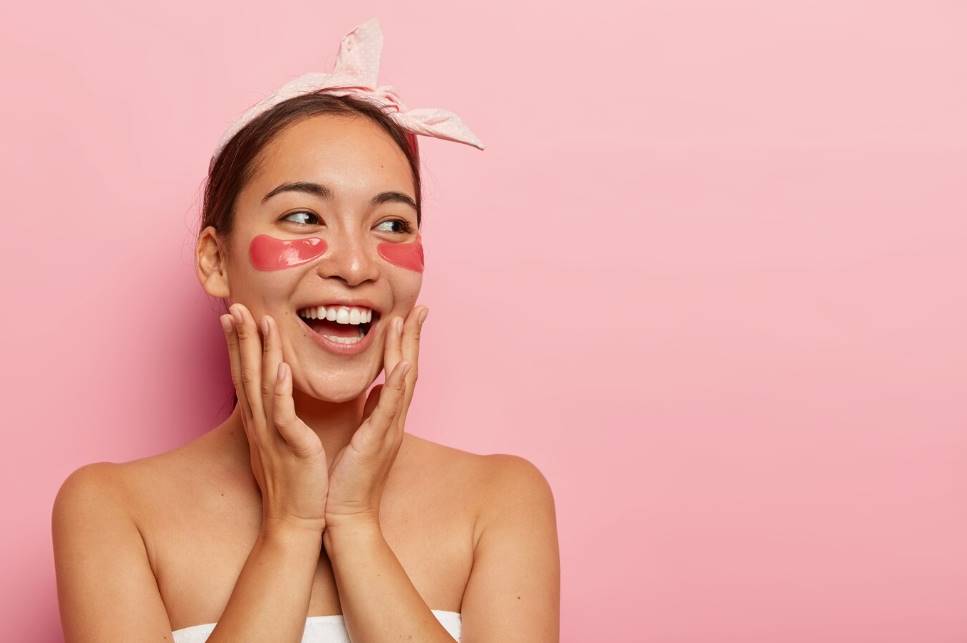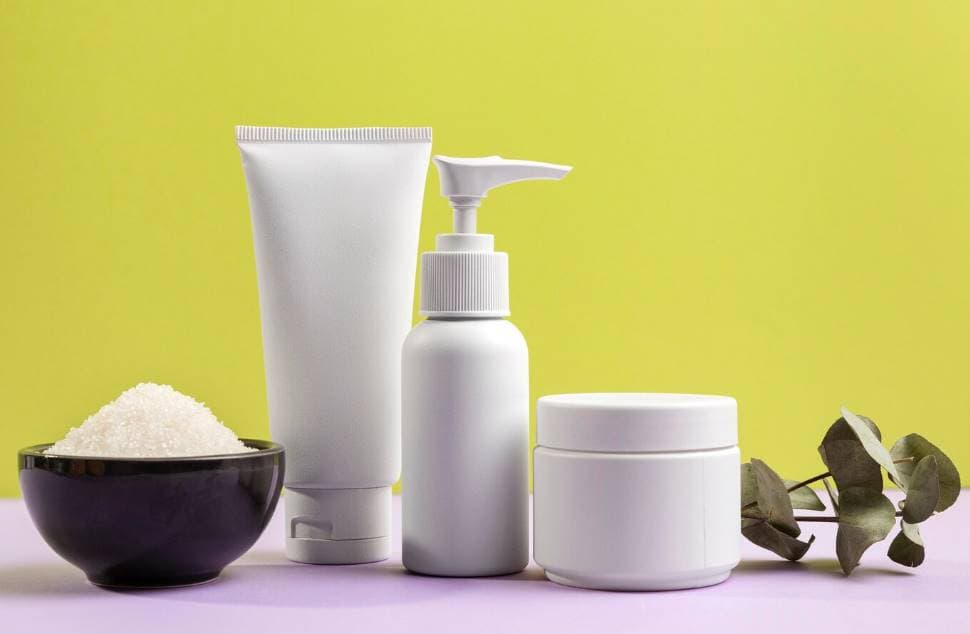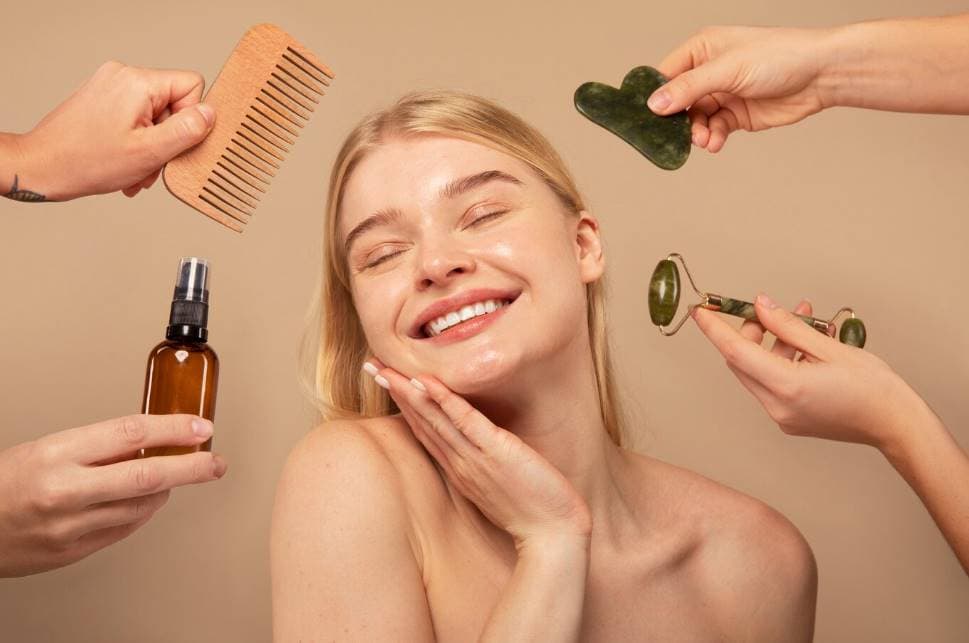Everyone has their own needs and preferences when choosing a skincare regimen. Your skin type and skincare problems, among other things, will determine the types and timing of products you should be utilising. If you have oily skin, you don't want to follow the same skincare routine as someone with excessively dry skin.
Common medical issues like acne, for instance, may need specialised treatment. So, with the help of this blog, we'll outline a healthy skincare routine for acne-prone skin and recommend some tips and guidelines for those who suffer from acne regularly. However, if you suffer from acne or frequent breakouts, it is always best to go to a dermatologist for a tailored treatment plan.
What Precisely Is Acne, And How Does It Develop?
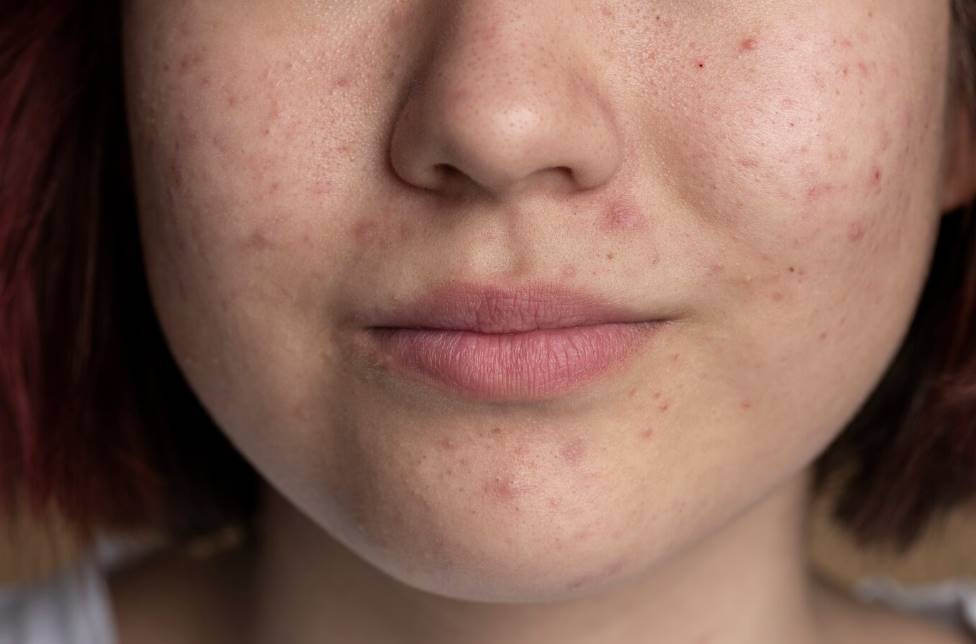
Sebaceous glands, which number in the millions on your skin and are linked to your hair follicles, secrete a protective oil called sebum. However, a few things can prevent the oil from leaving the hair follicles. Hormonal shifts and a buildup of dead skin cells both have a role in stimulating the sebaceous glands to produce excess oil, which in turn causes acne.
Hormonal acne is common among adults because of the increased oil production that might occur during pregnancy, menstruation, and while starting or switching birth control tablets. In addition, the stress hormone cortisol stimulates the oil glands, which can contribute to a breakout.
In addition, expert says that your pores might become blocked if you have an allergic reaction to a product or fabric (including, yes, a face mask worn during a pandemic). Yeast proliferation in the hair follicles can create a breakout similar to acne, especially on the upper chest and back. Acne can be caused by taking certain medications, including corticosteroids, and eating too much dairy. Seeing a dermatologist might help you figure out what's triggering your outbreaks.
Acne comes in many forms, and when pores become blocked, they can produce breakouts in several places:
Whiteheads: When oil and dead skin cells accumulate at the pore entrance, little, sensitive, flesh- or white-coloured pimples appear on the skin.
Blackheads: These look like whiteheads, but the clogged material turns black when it pushes through and comes into contact with oxygen in the air.
Pimples: When oil, germs, and dead skin are trapped inside a pore, inflammation occurs, resulting in distinctive red patches.
Cystic Acne: When oil, dead skin, and germs get under the skin, it can cause hard, painful bumps that feel like a marble.
How To Prevent And Get Rid Of Acne
Finding out what's triggering your acne can help you treat and stop it from flaring up again. Clearing [acne] can sometimes be accomplished with OTC medications alone, but it often requires prescription drugs. Acne can be prevented and treated with the help of a decent skincare routine and a healthy lifestyle. Acne can be difficult to cure, so seeing a board-certified dermatologist is important if you think you have it. However, maintaining a regular skincare routine is an excellent first step.
The Ideal Skincare Programme To Avoid Acne
Before doing anything else, you should examine everything that comes into contact with your skin (including makeup) and hair. When treating acne, the most common error I see clients make is using multiple products at once without checking the labels for harmful components. The absence of oily, acne-inducing substances is indicated by the presence of the terms "noncomedogenic," "non-acnegenic," and "oil-free" on the products you use. Then, daily, apply these six stages of a skincare routine that dermatologists recommend:
Step 1: Gently Wash Your Face.
Cleanse your face gently with your fingers or a washcloth. It would help if you also cleansed the area around your neck, ears, and jaw. Scrubbing your skin harshly or using abrasive pads is unnecessary and will not improve its condition. Use a cleanser that is appropriate for your skin type. Whether or not you take prescription acne medication may influence your choice of cleanser.
If your outbreaks aren't severe, an OTC acne wash should do the trick. Use either salicylic acid or benzoyl peroxide, whichever you prefer. Those already using prescription acne treatments should switch to a mild, non-medicated cleanser. Makeup wearers and people whose skin often perspires during the day should double-wash their faces at night. Makeup, sweat, and filth are all effectively removed with this thorough nightly wash.
Step 2: Use A Medicine For Treating Acne.
Here is your chance to apply the more potent substance on problem areas if you used a mild cleanser in step 1. Apply an over-the-counter moisturiser after cleansing, but before drying off with a soft towel.
The doctors warn that if you haven't seen improvement after using an OTC treatment for at least six weeks, you should see a dermatologist so they can prescribe a stronger prescription. Make an appointment with your dermatologist as soon as you begin using the topicals from the drugstore as a backup plan if you reside in an area where the wait is more than three months. If you decide you don't want it, cancel!
Step 3: Apply A Moisturiser That Isn't Oily.
Moisturiser may seem excessive concerning greasy skin and clogged pores, yet the contrary is true. Moisturisers are useful for maintaining a healthy skin oil balance. In addition, it improves acne patients' tolerance of drying acne drugs. The trick is to use only oil-free, comedogen-free moisturisers. A noncomedogenic moisturiser containing hyaluronic acid, which shields collagen, is recommended by experts.
Step 4: Remember To Use Sunscreen.
Protecting your skin from the sun's rays is essential, but if you have acne-prone skin, you need to be careful to select a sunscreen that won't aggravate your outbreaks.
Step 5: Do Another Nighttime Cleaning.
Oil, makeup, and dirt built up on your face over the day must be gently removed during your evening cleansing routine. If you want to apply a toner after cleansing, choose one that doesn't include oil. Experts advise using micellar water first, then your regular cleanser, for the best results.
Step 6: Use Retinol Before Going To Bed.
The final step in attaining clear skin is to apply a retinol cream before night. Retin-A is a vitamin A derivative used to treat wrinkles and acne by unclogging pores and is now available without a prescription. Retinol has multiple uses in treating adult acne. It exfoliates keratinocytes, the cells that comprise the skin's outermost layer, and aids in cell turnover and regeneration.
In addition to preventing and diminishing the appearance of fine lines and wrinkles, it also helps clear out clogged pores. When using a retinol product, an expert suggests easing into it. To avoid aggravation, he recommends starting slowly. Try it one or two days a week. The recommended schedule is three times a week and then daily if necessary.
Additional Skincare Tips
Avoid Over-Exfoliating.
Scrubs, toners, and peels can help keep acne at bay, but using too many at once might aggravate the condition. You should always stay within the dosing instructions on the bottle.
Refrain From Touching Your Face.
Always wash your hands thoroughly after contacting dirty surfaces or locations, and never touch your face. You should also refrain from popping your zits and avoid giving in to the impulse to pick at them.
Cleanse Your Face After Sweating.
Dirt and bacteria on your skin might accumulate in your pores if you sweat a lot. Sweat can cause breakouts, so it's important to rinse it off with clean water.
Keep Up A Nutritious Diet.
A balanced diet has many positive effects on the skin, including maintaining a smooth and healthy appearance. Try to eat more nutrient-dense foods like fresh produce, healthy fats, whole grains, etc.
Reduce Your Sun Exposure.
Your skin could dry and flaky if you spend too much time in the sun. Always seek out shade and apply sunscreen before venturing outdoors.
Drink More Water.
Consuming the recommended amount of water daily will assist in maintaining healthy-looking, problem-free skin. In addition to this, it is also associated with the promotion of various other health advantages.
Try To Use Less Cosmetics.
It is important to avoid piling on excessive amounts of makeup because it might cause pores to become clogged and acne. Similarly, you should always ensure that your makeup brushes and other instruments are well-cleaned regularly and that you remove all of your makeup before bed.
Reduce Stress
Your body may experience chemical and hormonal abnormalities brought on by prolonged stress, which might accelerate your sebaceous glands. Improper stress management puts you in danger of aggravating your skin issues.
The Impact Of Acne On One's Self-Worth
A person's confidence, happiness, self-esteem, and attitude can all take a hit due to acne, making it an issue beyond the skin. Although some may view acne as only an annoyance, research shows that those who suffer from severe acne have social and psychological consequences compared to those with conditions such as epilepsy and diabetes. Acne can have serious psychological repercussions.
Depression

Depression, rage, and anxiety are all associated with acne, even in minor cases. These negative consequences are just as common in adults as in teenagers and may even be more so in people whose acne has persisted or been resistant to treatment or who face greater social shame.
Social Anxiety
Everyone is self-conscious about something about themselves, whether it be the gaps in their teeth, the curve of their nose, or the size of their waist, even though our culture places a significant emphasis on outward appearance. Acne most often appears on the face, which is the portion of our body that is exposed to the outside world daily; as a result, it can be difficult to conceal and may cause us to feel uncomfortable or ashamed. Acne causes some people to have difficulty looking others in the eye, while other people with acne avoid social settings entirely, leading to increased feelings of isolation.
Shame
Some people have feelings of guilt or shame because they believe they are in some way responsible for the poor condition of their skin. This is because the reason for acne can sometimes be tied to our nutrition and general way of life. These emotions can be so powerful that they prevent us from engaging in the activities we want, such as posing for photographs or swimming with our friends.
Getting Treatment
Your life does not need to revolve around your acne. Even though some people have difficulty locating a therapy that is successful for them, a variety of effective treatments can be adapted to meet the requirements of your specific situation. Even if you have struggled with terrible skin for years, seeking therapy can bring a more positive attitude. You will also start to witness a change in your quality of life and self-esteem after you begin treatment.
Be truthful with your primary care provider and discuss whether or not acne is interfering with your ability to live your best life and receive the assistance you require.
Acne Scars And Emotional Distress Can Be Avoided With Early Treatment.
According to research, the longer acne persists, the more likely it is to have an emotional impact. Acne can worsen if it isn't treated. Scarring can occur while acne heals if it is severe.
These conditions are avoidable if treated early on. It can help clear the skin and stop acne from getting worse. To keep their skin clear, some people need to keep up with their skincare routine. That's undoubtedly a lot less stressful than coping with the mental anguish and lifelong scars caused by acne.
Conclusion
Acne-prone skin is a common medical issue that can be treated with specialized treatments. Sebaceous glands, which secrete sebum, can be stimulated by hormonal shifts, buildup of dead skin cells, and stress hormones like cortisol. Pores can become blocked due to allergic reactions, yeast proliferation, medications, and dairy consumption. Acne can develop in various forms, including whiteheads, blackheads, pimples, and cystic acne.
To prevent and get rid of acne, it is essential to identify the triggers and develop a skincare routine and a healthy lifestyle. Clearing acne can sometimes be achieved with OTC medications, but it often requires prescription drugs. Maintaining a regular skincare routine is an excellent first step, and seeing a board-certified dermatologist is essential if acne is difficult to treat. Maintaining a regular skincare routine is an excellent first step in addressing acne-prone skin.
To avoid acne, it is essential to examine everything that comes into contact with your skin, including makeup and hair. Avoid using multiple products at once without checking the labels for harmful components. The absence of oily, acne-inducing substances is indicated by the presence of "noncomedogenic," "non-acnegenic," and "oil-free" terms on the products you use.
To achieve clear skin, follow these six stages of a skincare routine:
1. Gently wash your face with your fingers or a washcloth, focusing on the area around your neck, ears, and jaw. Use a cleanser appropriate for your skin type, such as salicylic acid or benzoyl peroxide. If you are already using prescription acne treatments, switch to a mild, non-medicated cleanser.
2. Use an over-the-counter acne treatment, such as salicylic acid or benzoyl peroxide, if your outbreaks aren't severe. Switch to a mild, non-medicated cleanser after cleansing. If you haven't seen improvement after using an OTC treatment for at least six weeks, see a dermatologist for a stronger prescription.
3. Apply a noncomedogenic moisturizer, such as hyaluronic acid, to maintain a healthy skin oil balance and improve acne patients' tolerance of drying acne drugs. Remember to use sunscreen, and gently remove oil, makeup, and dirt from your face during your evening cleansing routine.
Additional skincare tips include avoiding over-exfoliation, refraining from touching your face, cleansing your face after sweating, maintaining a nutrient-dense diet, reducing sun exposure, drinking more water, avoiding excessive makeup use, and reducing stress.
Acne can significantly impact a person's self-worth, confidence, happiness, and attitude, leading to social and psychological consequences. Severe acne can cause depression, rage, and anxiety, especially in adults and those with persistent acne or social shame. Social anxiety can arise due to the difficulty of concealing acne, leading to feelings of isolation and guilt. Acne can also be linked to nutrition and lifestyle choices, preventing individuals from engaging in desired activities.
Treatment for acne can be adapted to meet individual needs, leading to a positive attitude and improved quality of life. It is essential to be honest with your primary care provider and discuss the impact of acne on your ability to live your best life. Early treatment can prevent acne scars and emotional distress, and maintaining a skincare routine can be a less stressful alternative to dealing with lifelong scars caused by acne.
Content Summary
- Individual skincare needs vary based on skin type and concerns.
- Oily skin requires different care than excessively dry skin.
- Acne-prone skin may need specialised treatment.
- Seeking advice from a dermatologist is essential for those with frequent acne.
- Sebaceous glands produce a protective oil called sebum.
- Hormonal shifts can lead to increased sebum production.
- Hormonal acne can be triggered by pregnancy, menstruation, and changes in birth control.
- The stress hormone cortisol can contribute to breakouts.
- Allergic reactions to products or fabrics may block pores.
- Certain medications and excessive dairy consumption can lead to acne.
- Acne can manifest as whiteheads, blackheads, pimples, or cystic acne.
- Recognising acne triggers aids in treatment and prevention.
- A good skincare routine can help prevent and treat acne.
- Regularly consulting a dermatologist is essential for severe acne.
- Check all products for harmful components when treating acne.
- Products labelled "noncomedogenic," "non-acnegenic," and "oil-free" are best for acne-prone skin.
- Gently cleansing the face daily is the first step in an acne care routine.
- Over-the-counter acne washes containing salicylic acid or benzoyl peroxide can be beneficial.
- A second nightly wash can help remove makeup, sweat, and dirt.
- After cleansing, an acne treatment should be applied.
- If OTC treatments don’t work within six weeks, see a dermatologist.
- Always apply an oil-free moisturiser to maintain skin's oil balance.
- Sun protection is crucial, but the sunscreen should be acne-friendly.
- A nighttime cleansing routine helps remove the day's dirt and makeup.
- Using retinol cream at night can help unclog pores and treat acne.
- Easing into the use of retinol products can prevent skin irritation.
- Avoid excessive exfoliation, as it can aggravate acne.
- Avoid touching the face to reduce the spread of bacteria.
- Wash the face after sweating to prevent pore blockage.
- A balanced diet promotes healthy skin.
- Excessive sun exposure can dry and damage the skin.
- Drinking water promotes healthy skin and offers other health benefits.
- Minimise makeup use to avoid clogging pores.
- Clean makeup brushes regularly to prevent bacterial buildup.
- Prolonged stress can stimulate the sebaceous glands, worsening skin issues.
- Acne can severely impact an individual's self-worth.
- Severe acne can have social and psychological consequences.
- Those with acne can experience depression, anger, and anxiety.
- Adults and teens alike can face the negative psychological effects of acne.
- Acne can also lead to heightened social anxiety.
- Makeup should always be removed before bedtime to prevent breakouts.
- A toner, if used, should be oil-free.
- Micellar water followed by a regular cleanser is recommended for optimal cleansing.
- Retinol helps with cell turnover, unclogs pores, and addresses fine lines.
- Reduce stress to minimise chemical and hormonal imbalances affecting the skin.
- People with severe acne may experience more psychological distress than those with epilepsy or diabetes.
- Everyone has self-conscious aspects, but acne can exacerbate this feeling.
- Acne's impact goes beyond the skin, affecting mental well-being.
- Using less makeup can significantly reduce the risk of clogged pores.
- Always read product labels and choose those best suited for acne-prone skin.
Frequently Asked Questions
Acne has three main causes:
- Too much oil production
- Not shedding dead skin cells
- Too much of a specific bacteria on the skin
All three of these factors have to be present for acne to develop. People can also be more prone to acne because of their genetics.
Dry, red skin makes acne appear worse. Rinse your face with lukewarm water; hot water can irritate existing acne and strip the skin of its natural oils and moisture. Shampoo hair regularly. If you have oily hair, it is recommended that you shampoo daily.
Acne is a common issue for many people, especially teenagers and young adults in their 20s. Some have mild symptoms, while others can have very severe issues. Acne affects around 90% of adolescents, with the prime age across all genders being the teenage years of 14-19.
Icing a pimple may help reduce pain, redness, and swelling due to inflammatory acne. However, ice may provide little or no benefit for noninflammatory pimples. People who try icing a pimple should always wrap ice cubes and frozen gel packs in a clean cloth or plastic bag.
If you don't get good, restorative sleep, your body might not feel rested and could kick-start that cortisol surge, putting you at risk for more acne. The fix is simple but only sometimes easy: Make sleep a priority to give your body the rest it needs and your acne a chance to heal.
